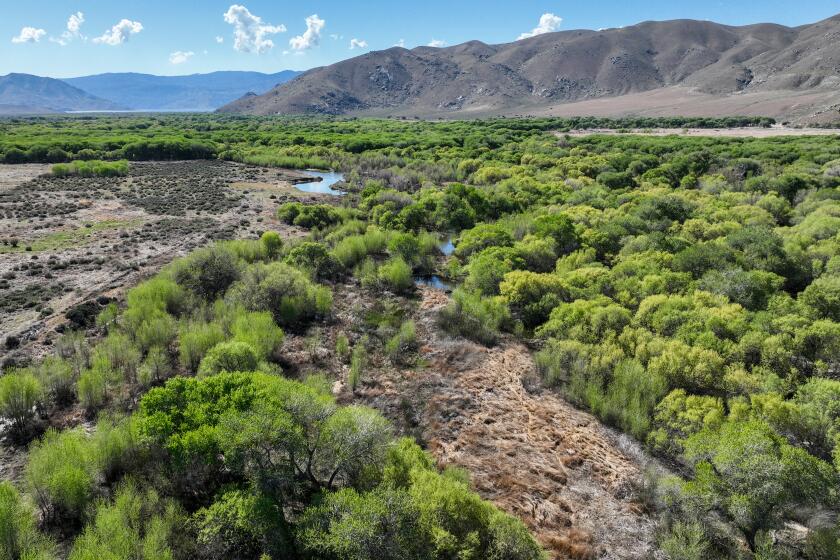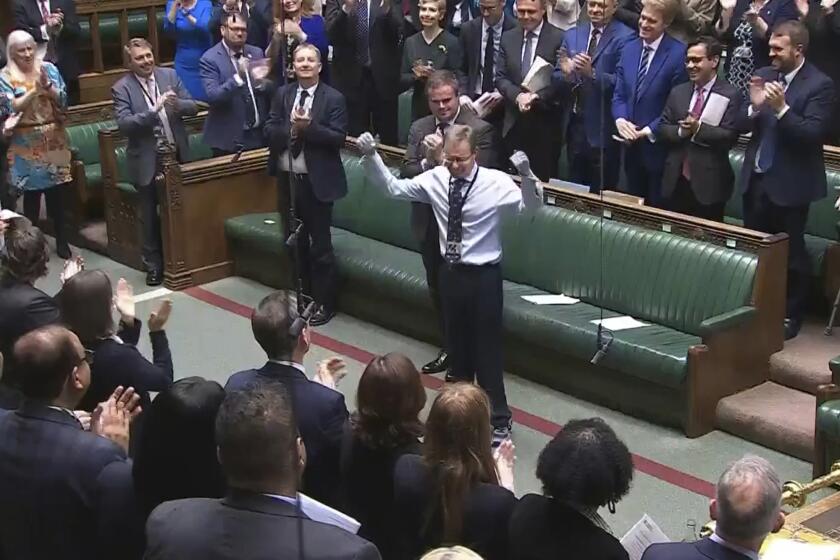Greenhouse Effects Are Real, but They May Not Be as Devastating as We Fear
Our species has lost its environmental innocence. For the first time, humans are changing the Earth. In the past we despoiled lakes, chopped down forests and allowed the land to be devastated by erosion. But it was only a single lake, a few square miles of land; there were always other forests and new frontiers.
Now our emissions of chlorofluorocarbons (CFCs) seem to have had devastating effects on the stratospheric ozone, which protects us from excess ultraviolet radiation leading to skin cancer and threatening some plant and animal species. Our emissions of carbon dioxide from coal, oil and natural gas--together with deforestation, emissions of methane and nitrogen oxides--are putting a blanket of “greenhouse” gases around the Earth that is predicted to raise temperatures by perhaps 8 degrees by the middle of the next century. These global effects leave humans with no remaining unpolluted frontier.
Some recent news stories imply that the current drought in the Middle West and the heat wave over much of the nation are the first indications of this greenhouse effect. They call for immediate action, lest humans face a struggle to survive on a hostile Earth.
But the tone of alarm is contradicted by bland recommendations. Is the problem dire, or is a less hasty response needed?
Concerned people feel that they must exaggerate to get the public’s attention. Exaggeration to shatter complacency polarizes the public, since some accept the claims at face value and can’t understand why others seem unwilling to make large sacrifices. The believers and the skeptics tend to talk only among themselves, and see the other group as growing more unreasonable. When scientists learn enough to justify action, they find it difficult to get a hearing, since everyone already “knows” the answer.
There is a build-up of greenhouse gases. Current weather patterns almost certainly have nothing to do with the greenhouse effects. Precisely what the result will be is highly uncertain. If the resulting changes in climate are large and highly disruptive, we will have to reforest, to stop burning fossil fuels and to curtail emissions of both CFCs and methane. These steps will be disruptive and extraordinarily costly (since almost all of our generated energy comes from fossil fuels), and could increase strife as nations taking these steps attempt to coerce others refusing to comply. Some energy would come from increasingly costly solar sources, and most energy from nuclear power.
Society would bear the disruption and the costs. Why rush into such disruptive steps? Future technologies should enable us to use much less energy and to generate it with less harmful consequences. Greenhouse effects might be much less devastating than we fear.
What we should be doing now is to:
--Encourage other nations to join us in implementing and strengthening the Montreal treaty to cut the production of CFCs. That would involve little cost and would be beneficial in two ways: It would reduce the threat to the stratospheric ozone, and it would decrease the magnitude of greenhouse effects.
--Turn our creative energies toward finding ways to conserve energy without pain. This is good economics, good politics and good environmentalism, both for current air and water pollution and for future green-house effects.
--Promote basic research on greenhouse effects, on solar energy and on nuclear power. We need a better understanding of greenhouse effects and better energy technologies to turn to when the need arises.
--Increase our efforts to help poor countries develop economically and be able to adjust to climate changes. My current research shows that poor countries are much more vulnerable to greenhouse effects than are rich nations. Perhaps the only way to help the poor countries in the future is to refocus our foreign aid on helping them to become more flexible and able to cope with changes in weather, pests and financial markets.
The rich nations must awaken to their power to affect the environment now and in the future. Our creative efforts must be focused on energy conservation and on discharging less waste into the environment. The greenhouse effect doesn’t call for panic, but it does require a thoughtful long-term response.



